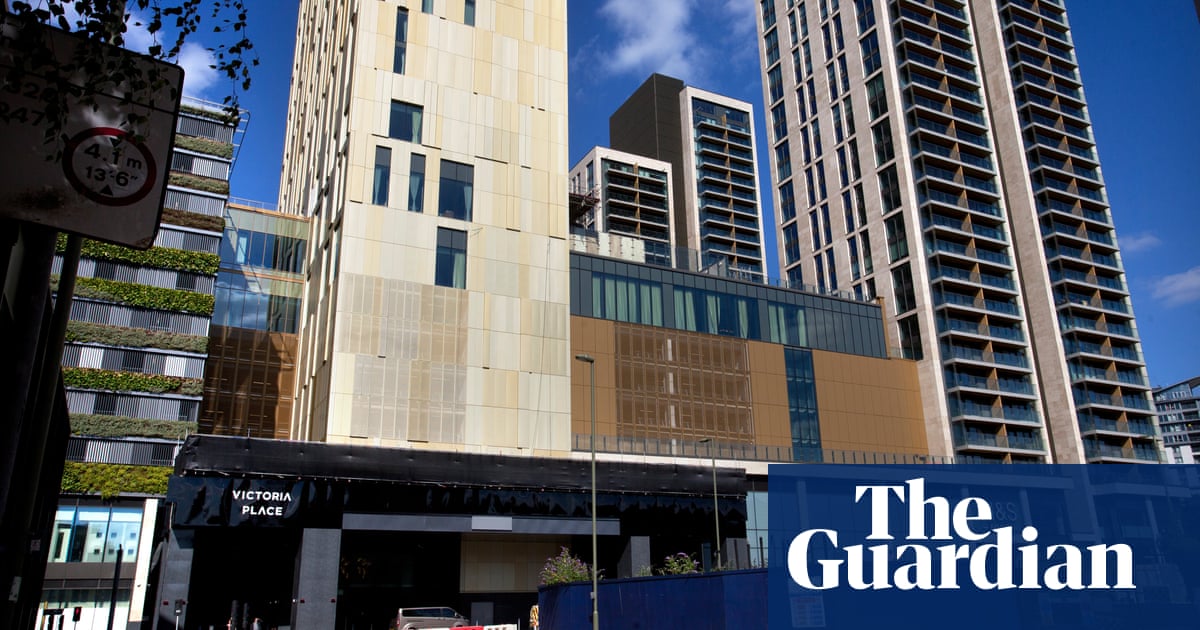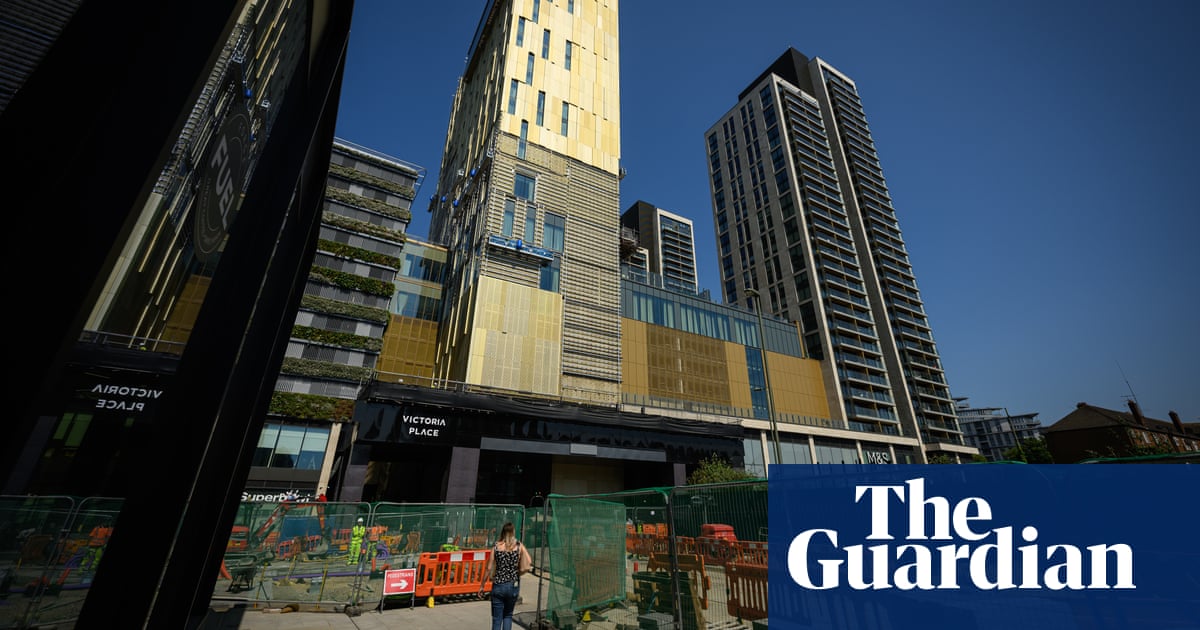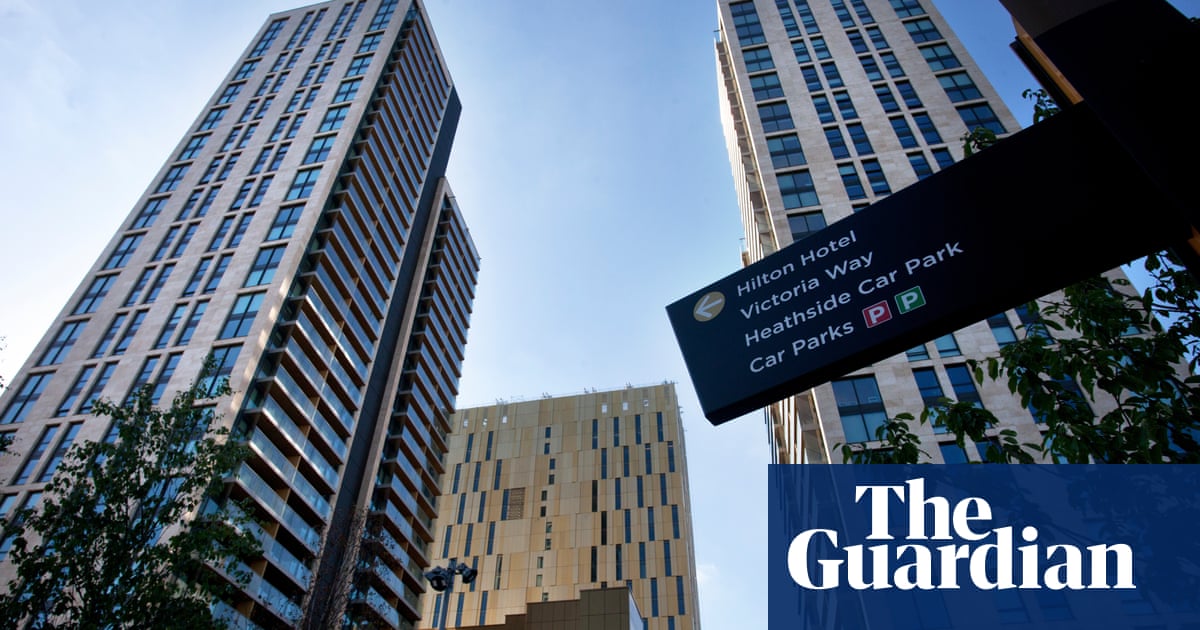
Woking council has declared it is in effect bankrupt after admitting a risky investment spree involving hotels and skyscrapers overseen by its former Conservative administration had left it facing a deficit of £1.2bn.
In what is thought to be the biggest financial failure in local government history, the Surrey council said it had issued a section 114 notice on Wednesday in response to “unprecedented financial challenges” facing the town.
A section 114 notice is effectively an admission that a local authority does not have the resources to meet current expenditure, with Woking joining Thurrock, Croydon and Slough as the latest English council to run into trouble after ploughing cash into risky commercial investments.
Woking said that against its available core funding of £16m in the 2023-24 financial year, the council faced a deficit of £1.2bn.
Laying bare its financial position, the tiny home counties authority in the affluent London commuter belt warned it had failed for the past 15 years to set aside enough money to keep up with payments on a vast debt pile amassed under its former Tory leadership.
Racked up to finance the building and acquisition of a vast empire of commercial assets, its investments included a complex of sky-high towers – standing as the tallest buildings outside a big city in England – including a four-star Hilton hotel, public plazas, parking facilities and shops.
Woking warned its debts were forecast to hit £2.6bn, while it had taken the uncomfortable step of writing down the value of its investment portfolio by more than £600m in a reflection that its property holdings were worth far less than previously anticipated.
Ann-Marie Barker, the council’s Liberal Democrat leader, whose party took over from the former Tory administration after it was voted out in local elections last year, said there was a danger that services could be cut as a consequence.
“We’re going to have to look at those and provide the services in a very different way in future. Inevitably it’s not going to be such a good service as it was in the past,” she told the Guardian.
Woking was put into special measures by ministers late last month amid rising concern in central government over the scale of its debt problems.
Most of the council’s spending had been financed by an obscure arm of the Treasury – the Public Works Loan Board – with £1.3bn worth of borrowing that Woking could now struggle to repay.
The process will be overseen by a team of expert commissioners after a review launched this year. It is believed the council’s troubles are so significant they could have an impact on the national government finances.
“The debt in Woking is staggering,” said Meg Hillier, the Labour chair of the Commons public accounts committee, adding that the government needed to have a “stronger oversight” of how councils were investing.
In 2020, the powerful cross-party committee said ministers were “blind” to “extreme risks” of investment by cash-strapped councils.
Hillier said: “We have seen too many councils borrow multiple times their annual budget at huge risk and real cost to local council taxpayers.”
Many councils piled into property and other commercial enterprises to raise money to fill gaping holes in their budgets and to undertake regeneration projects after sharp cuts to central government funding introduced under the Conservatives’ austerity drive.
Kevin Davis, the Conservative group leader on Woking council, said his local party had issued an apology to residents for the financial position the local authority was now in, while arguing that council’s investments were made in good faith in an attempt to regenerate the town.
Davis said: “Remember the cost measures coming through every year with the revenue grant being steadily reduced. It’s safe to construct an argument that says that period led the council to look for other ways to generate that missing income.”
He added that the pandemic had significantly affected the valuation of the council’s assets, but also suggested further investigation was required to establish whether the former Tory administration had adequate checks and balances in place when it was making investment decisions.
“It’s likely the answer is that, no, it was not robust enough, it is more than just Covid,” Davis said.
A government spokesperson said: “Following serious ongoing concerns about the financial situation of Woking council, the government announced an intervention into Woking’s financial position in May and commissioners have been appointed. We will continue to work closely with the authority and will take action if necessary.”












